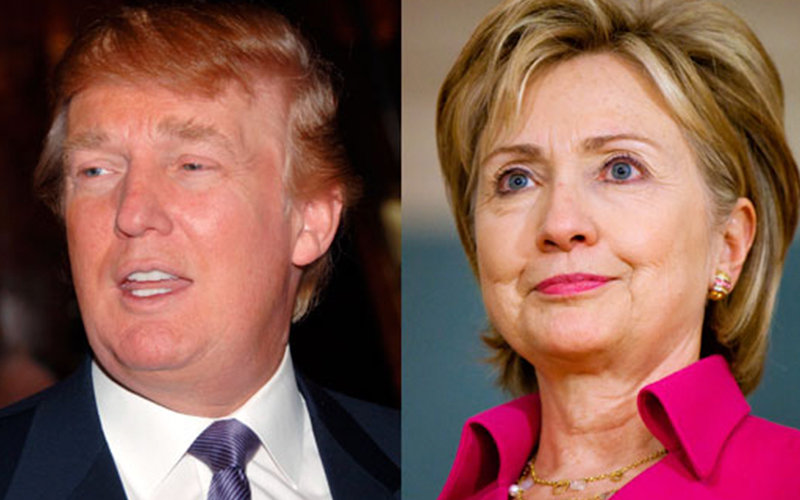
A CNN poll showed presidential candidate Donald Trump with a slight post-convention lead over Hillary Clinton as the Democratic National Convention began Monday, July 25. It’s a traditional swap similar to recent election years, but a significant boost nonetheless, said Matthew Jarvis, associate professor of political science.
Cal State Fullerton communications and political experts say the deeply personal political game is working for both parties as the nation inches closer to the November ballot. The candidates are simultaneously countering personal attacks, while making strides toward the connections they crave with voters still stinging from party rifts.
Ratings for Trump’s wife, Melania, climbed 27 percent last week despite accusations of speech-lifting from first lady Michelle Obama’s speech eight years earlier.
“Her favorability went up because, quite frankly, Republicans didn’t know who she was until then. Now, they recognize the name, and she’s now one of the tribe,” said Jarvis.
Social media transformed coverage also, said Jason Shepard, chair and associate professor of communications. “It was a Twitter user who first made the connections between Melania Trump and Michelle Obama’s speeches,” he said. “This is also the first convention season where we have a candidate live Tweeting the events. It has been fascinating to watch Donald Trump comment almost in real time about the DNC convention.”
Democrats appeared more unified at their convention, said Jon Bruschke, professor of human communication studies. “The Republican rifts are much deeper. Any advantage Melania Trump gained was dwarfed by Michelle Obama’s performance,” he said.
Monday evening, Obama spoke as a spouse and mother, empowering party followers to take the path of unity. On Tuesday, Sen. Bernie Sanders endorsed Hillary Clinton — more than Ted Cruz offered Donald Trump during the Republican National Convention one week prior — and then followed with the evening’s motion that the roll call vote be suspended and Clinton be nominated as the Democratic nominee.
And, like with Melania Trump, the nation looked to Clinton’s spouse, former President Bill Clinton, to humanize and soften the candidate voters think they know.
“The Democrats also have taken a strong stance in favor of inclusiveness and, for the first time, very strongly embraced Clinton’s role as the first female presidential nominee for a major party,” Bruschke said. “The open question, to be answered between now and election day, is whether those themes will resonate more with voters than the Republican stances on immigration and crime.”
The conventions alone aren’t likely to pivot any party voters, Jarvis and Bruschke agree. Yet, a block of Bernie Sanders supporters must now be won, and some walked out of the convention in protest after Clinton received the nomination. Post-convention polls could highlight how many, if any, ambivalent or independent voters remain on the fence.
What could change a voter’s mind — gender, policy, personality, experience?
“For around 70 to 80 percent of voters: just about nothing,” Jarvis said. “For the rest, while they won’t admit it to themselves, it will mostly come down to the state of the economy, though Trump’s uniqueness could throw that off. So far, even the most outlandish of Trump’s statements haven’t really moved the polls much.
“After a week or two, the polling will settle down,” he said. “Expect Clinton to pick up support after this week, then the effects should normalize and we’ll get a good picture of what the race looks like now, and will likely look like in November.”